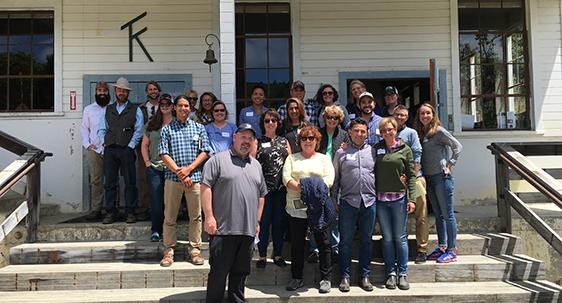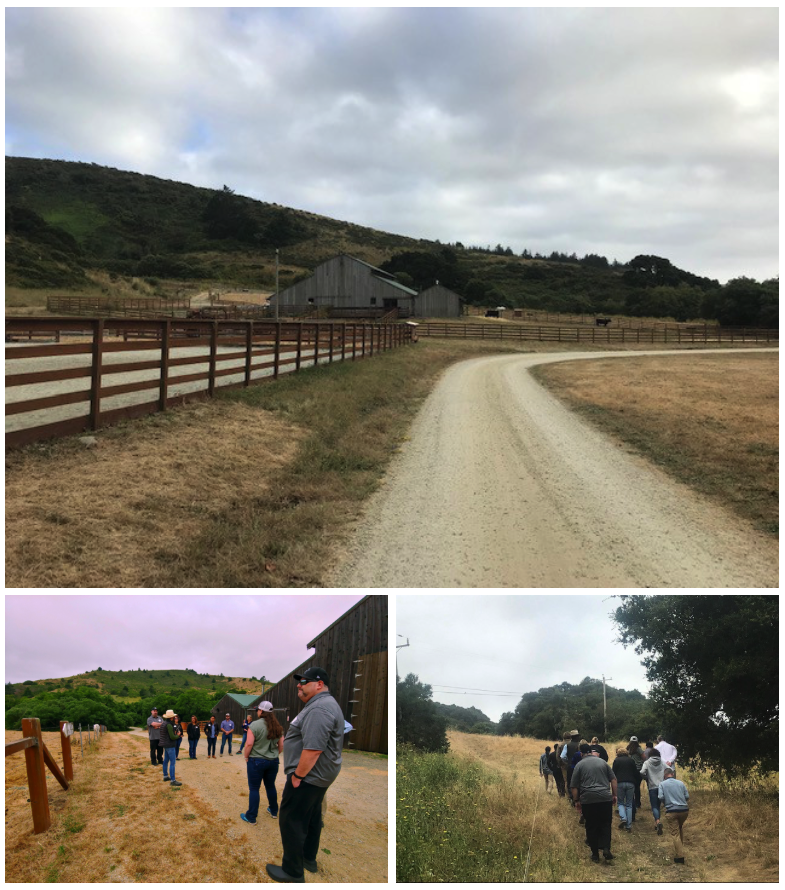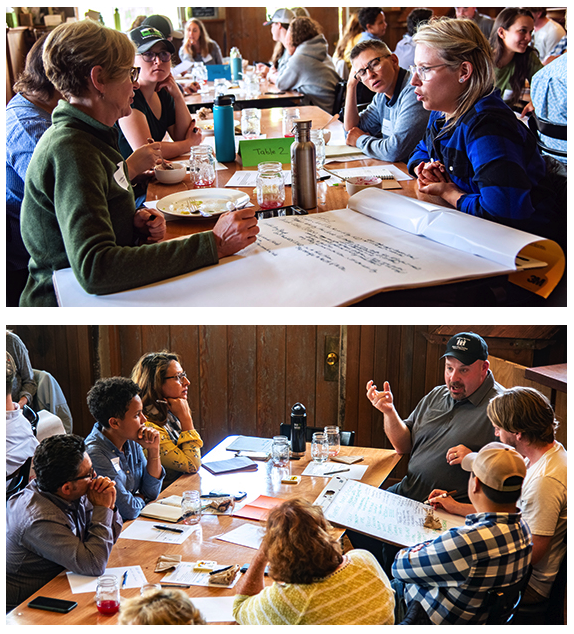On a beautiful sunny July day in Pescadero, Calif., 30 leaders representing K-12 school districts, hospitals, and ranches gathered at TomKat Ranch, a 1,800-acre grass-fed cattle ranch in the San Francisco Bay Area. After touring the ranch, enjoying tasty grass-fed burgers for lunch, and learning about regenerative agricultural practices, this group of diverse stakeholders participating in the ProCureWorks initiative launched a purchasing pilot that aims to meet the growing demand for authentic grass-fed beef products and improve the economic viability of local ranching communities.
“I attended today’s convening,” says Kendra Worrell, Santa Clara Medical Center director food & nutrition services, “because I’m looking to make regional connections and to figure out opportunities for collaborative purchasing with other institutions.”
“We have been getting some of our beef from Stemple Creek and are looking for ways to increase our purchasing of sustainable beef,” says Sheri Nielsen Santa Clara Unified School District operations manager, “because at the end of the day, our goal is to introduce good food to the kids.”
ProCureWorks launched the grass-fed beef to institution purchasing pilot in collaboration with partners at Community Alliance with Family Farmers and TomKat Ranch.
ProCureWorks leverages the combined purchasing power of five California school districts representing over 530 schools and eight California health care systems with over 55 member hospitals to create healthier food choices for the well-being of children, patients, staff, and families.
The convening at TomKat introduced hospital and school food buyers to local regenerative ranchers that are managing the cattle and land in a regenerative way to improve soil health, animal welfare, water quality, and availability and that are interested in providing nutrient-dense food to their communities.
The pilot seeks to find plausible solutions for procurement and supply chain barriers for the institutions and the ranchers in order to set up successful purchasing relationships that can be sustained over the long-term.
“We are interested in this pilot because we want to connect with people who want to buy better food,” says Kyle Meniketti of Richard’s Grassfed.
The group walked away feeling inspired about the opportunities that this pilot represents and is eager for the next steps.
“I think it’s key to get the buyers back in the room as soon as possible so we can capitalize on the momentum,” says Andrew Wong, Morris Grassfed sales and marketing.


